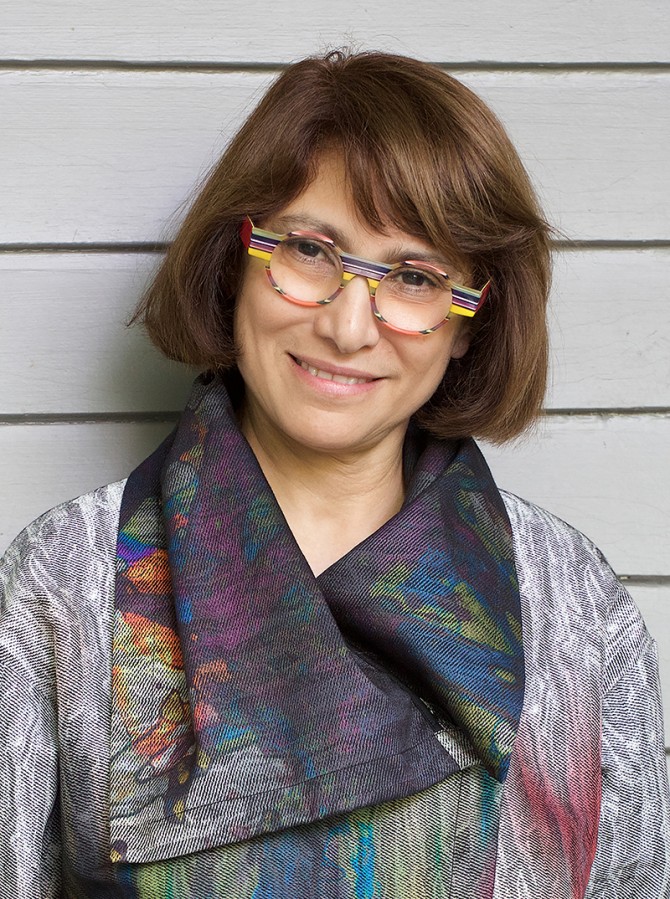Harvard professor to discuss implicit bias
By Lori Sonken
Everyone holds biases in ways they would abhor if they were held by someone else, says Mahzarin R. Banaji, the Richard Clarke Cabot Professor of Social Ethics and chair in the Department of Psychology at Harvard University.
She will give a talk, “Blindspot: Hidden Biases of Good People,” Feb. 11 at 3:30 p.m. in Statler Auditorium. The lecture is free and open to the public.
Banaji studies the less conscious, implicit and automatic ways our minds operate. Her work illustrates how the values and aspirations we hold can be inconsistent with our behavior. As an example, she notes that even she has not completely overcome the stereotype that males are the gender with successful careers, despite her accomplishments.
Elected to the National Academy of Sciences and the American Academy of Arts and Sciences, and named the Herbert A. Simon Fellow of the American Academy of Political and Social Science, Banaji also received several awards from the Association for Psychological Science for her research and contributions to society. Both Harvard and Yale, where she previously taught, recognized her for excellence in undergraduate teaching, and she has earned many additional awards.
“The reason it shouldn’t surprise anybody anymore that I show a bias favoring the male+career association is because, unlike my explicit beliefs, my implicit beliefs are shaped by what my experiences are,” Banaji said. “And even though my personal experience of myself is that of a woman with a career, my culture has not permitted me to acquire that association for my group, female, as a whole.”
Banaji uses multiple methods to measure bias, including cognitive and behavioral tests and neuroimaging. She examines bits of knowledge stored in our brains – she calls them “mindbugs” – that influence our behavior toward members of particular social groups, such as people of a certain religion, age, gender, occupation, religion, nationality or ethnicity.
“I demonstrate how our minds work, and how all of us make errors in judgment and decision-making that can be costly,” she said.
In her book – also titled “Blindspot: Hidden Biases of Good People” – Banaji and co-author Anthony G. Greenwald tell the story of a woman rushed to the emergency room at Yale-New Haven Hospital after accidentally slitting her hand from mid-palm to wrist. As the doctor prepared the woman’s hand for sutures, a student volunteer called out, “Professor Kaplan! What are you doing here?”
Upon discovering his patient was a Yale professor, and not just a quilter as he originally understood, the physician canceled his plans to stitch up her hand. Instead, he arranged for her to see the most renowned hand specialist in New England. In this case, the hidden bias favored the Yale professor over the artisan.
Though difficult, people’s attitudes can change when they purposefully think new thoughts that oppose an existing association, Banaji says. For example, she found a 33 percent reduction in anti-gay bias in Americans from 2005 to 2015.
“That’s impressive,” she said. “Why exactly this has happened, we don’t know. But that such change has happened is striking and, if we desire neutrality, a happy result.”
Similarly, bias toward race and skin tone dropped during the same 10-year-period but only by about 15 percent. In contrast, stereotypes about the elderly and those with a disability are not moving toward neutrality, according to Banaji’s research.
“Change can take place in any direction,” she said. “It’s up to us as a society to decide how important it is to work toward neutrality to engage in understanding why sexuality attitudes are changing so fast while others are not.”
Banaji’s talk serves as both the Robert L. Harris Jr. ADVANCEments in Science lecture, supported by the Office of Faculty Development and Diversity, and the annual lecture for the Institute for the Social Sciences. The Department of Psychology Colloquium and the Center for Bright Beams are also sponsoring her lecture.
Lori Sonken is the communication and program manager for the Office of Faculty Development and Diversity.
Media Contact
Get Cornell news delivered right to your inbox.
Subscribe

